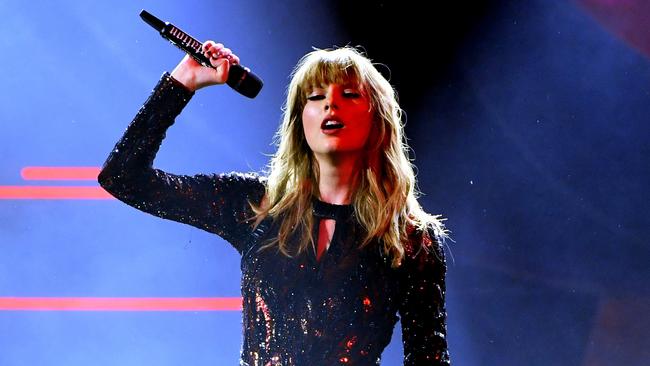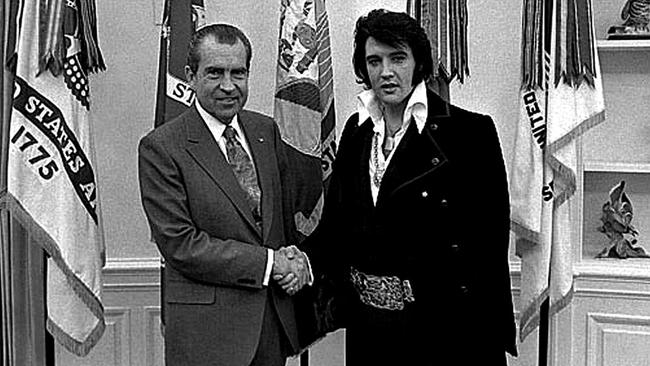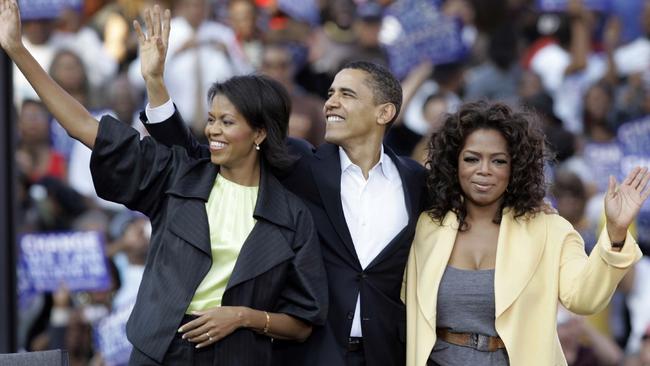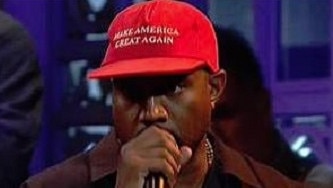Why Taylor Swift’s political cry may backfire
THE long history of celebrity political endorsements is a mixed bag of some success and some crushing failures, writes James Morrow.
Rendezview
Don't miss out on the headlines from Rendezview. Followed categories will be added to My News.
THE best thing about democracy is that everybody gets a say.
Coincidentally, this may well also be the worst thing about it.
This week, ending years of silence — and no end of rather creepy demands for her to show her cards — singer Taylor Swift revealed that she would be voting for Democrats in her home state of Tennessee in next month’s Congressional elections.
Hosannas, of course, poured down from social media and Democrat activists keen to have another high-profile name signed up to their crusade to unseat Donald Trump and scatter Republican representatives to the four winds.
Reportedly, voter registrations have surged in the wake of Swift’s endorsements (which is important in a country like the US where voting is in no way compulsory).
But for his part, Donald Trump took it in stride, saying that while he’s still a fan, he now likes Tay-Tay’s music “ about 25 per cent less now”.
Swift is far from being the only star to weigh in to American politics, with less than four weeks on the clock to America’s fiercely contested midterm elections.

Kanye West — a long unwanted guest of Swift’s fame narrative — once again punched his ticket for the Trump train on last week’s edition of Saturday Night Live, delivering first a pro-Trump speech (his detractors called it a “rant”), and then later announcing that he would soon be having lunch with the president to discuss issues including gang violence and prison reform.
For this, and many other pro-Trump actions, Yeezy has had his very sanity questioned.
Talk show host Montel Williams, for one, said he was worried about Kanye’s mental health, echoing many others who suggested support for Trump was a manifestation of instability.
What a way to sell your product — entertainment — to an America that, according to the latest Rasmussen daily tracking poll, puts Trump’s approval among likely voters at 51 per cent.
Celebrity endorsements of politicians have a long history in the US.

Back in 1960, Rat Pack members Dean Martin and Sammy Davis threw their lot in with John F. Kennedy (who probably could have shown them a thing or two about how to party).
Ten years later, Elvis Presley rocked up unannounced to the White House and talked his way into a meeting with then-President Richard Nixon, in the hope of enlisting as a foot soldier in the war on drugs and collecting a badge from the federal Bureau of Narcotics and Dangerous Drugs.
(Not that there wasn’t an ulterior motive behind the visit, of course. As Priscilla Presley wrote in her memoir, Elvis and Me, “With the federal narcotics badge, Elvis believed could legally enter any country both wearing guns and carrying any drugs he wished.”)
In 2008, Oprah Winfrey jumped in behind Barack Obama and is thought to have increased voter registration and brought the candidate up to an additional one million votes.
It doesn’t always work out, of course.

At around the same time in Australia, Kevin Rudd courted every star he could wrangle and made sure to be seen with them, only to see his government crash and burn in a 2010 coup.
And Hillary Clinton had a Rolodex of Hollywood celebs behind her and she still lost the election — in no small part because she was seen to have spent so much time currying favour with America’s coastal A-lists that the middle of the country felt they were being ignored by a candidate out of touch with their day to day lives.
None of this is new, of course.
But what is new is the unashamed demand for political — that is to say, hard-left, progressive — orthodoxy from celebrities.
Because while Hollywood has never been a bastion of conservatism, the idea that an endorsement of a sitting president because he is from the “wrong” party or has the “wrong” policies can only be explained by mental illness is more sinister. It’s more than a little reminiscent of the Soviet Union’s habit of sending political dissidents to asylums.

As is the idea that those who want to voice an opinion, as Swift may well have wanted to do in the past, are too scared to lest their fanbase turn on them completely.
And as the Hillary Clinton campaign and the Rudd government found, to their peril, star power is not enough to keep a candidate or a government aloft.
Which is a damn good thing, too.
Whether one lives in the US or Australia, your vote is too precious to give it away on the basis that someone who sings for a living told you to do so.
Following the advice of celebrities on politics is a bit like asking a neurosurgeon how to make a souffle. Just because someone has expertise in one area doesn’t mean they’re experts on everything.
Instead, listen to the experts. Do the reading.
And vote the policies, not the personalities.
James Morrow is opinion editor of The Daily Telegraph.
Originally published as Why Taylor Swift’s political cry may backfire



